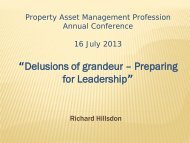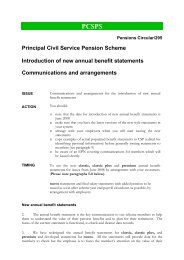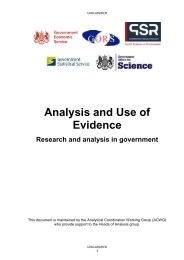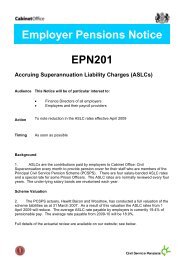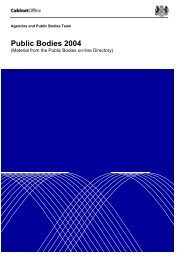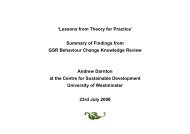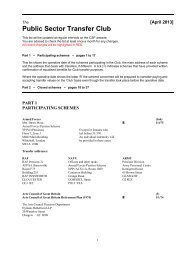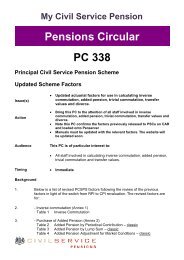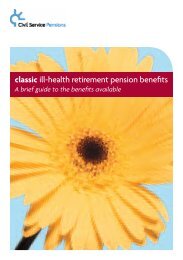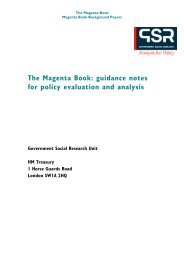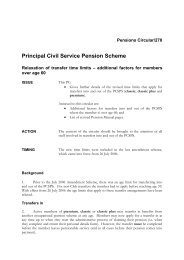Making Car Sharing and Car Clubs Work - Case ... - The Civil Service
Making Car Sharing and Car Clubs Work - Case ... - The Civil Service
Making Car Sharing and Car Clubs Work - Case ... - The Civil Service
Create successful ePaper yourself
Turn your PDF publications into a flip-book with our unique Google optimized e-Paper software.
MAKING CAR SHARING AND CAR CLUBS WORKCASE STUDY SUMMARIESMembership Growth (Actual <strong>and</strong> Expected)2500Number of Users20001500100050002001 2003 2006City Council (MOSES)CooperativesCommercialSuccesses / Failures24.5 <strong>The</strong> success of the scheme is largely due to the high level of political support given to theinitiative. <strong>The</strong>re has been a statement made regarding the desire to develop car clubs for all17 Districts in Stockholm, <strong>and</strong> this is helping to establish local support. In particular, thisstatement is expected to enable the dedication of car parking spaces to be undertaken(through the real estate administration), <strong>and</strong> can be offered to car club operators either freeof charge or heavily discounted.24.6 <strong>Car</strong> Club members already receive some level of financial gain through the taxation system,<strong>and</strong> this is currently under further review.24.7 For example, car club vehicles are exempt from VAT (which is charged on car rentalvehicles for example). Staff that currently use a car club vehicle, are taxed as a 'perk' if theyuse the vehicle for private use for more than 10 times or 1000kms each year - this iscurrently being investigated, but will require national legislation to change the system. <strong>Car</strong>club users are exempt from the mileage duty paid on car use (2.5swkr per kilometre) Inaddition, the spaces used by car club vehicles are generally free of charge (normallyapproximately 1,000swkr per month). Currently many employees in the City have permit touse their private car in duty. Such a permit gives them the right to park free of charge duringworking hours at city parking areas or garages <strong>and</strong> they also get paid about 2,50 swkr perkilometre driven on duty. By introducing car clubs which are available for employees on dutythe City hopes to remove the permits to use private cars which will save both money <strong>and</strong> theenvironment, since there will be mostly clean vehicles in the car clubs.Supporting Measures / Alternative Approaches Considered24.8 One of the key drivers for success will be the forthcoming introduction of congestioncharging - which is due to be trialled in June 2005, with a vote on the long term future ofcongestion charging due in August 2006. <strong>The</strong> congestion charge will be based around acordon, with a variable charge (based on time of day) of between £1 <strong>and</strong> £2 per crossing(with a maximum cost of £6 per day). Whilst users of car club vehicles will not be exempt byright, all ‘clean fuelled’ car club vehicles will be exempt from the charge.24.9 <strong>The</strong> scheme is well coordinated with Park <strong>and</strong> Ride, with the public transport heavilysubsidised (approximately 50% subsidy). A month season ticket is approximately £60 forFinal V1.1, Dec. 2004 - 139 -



